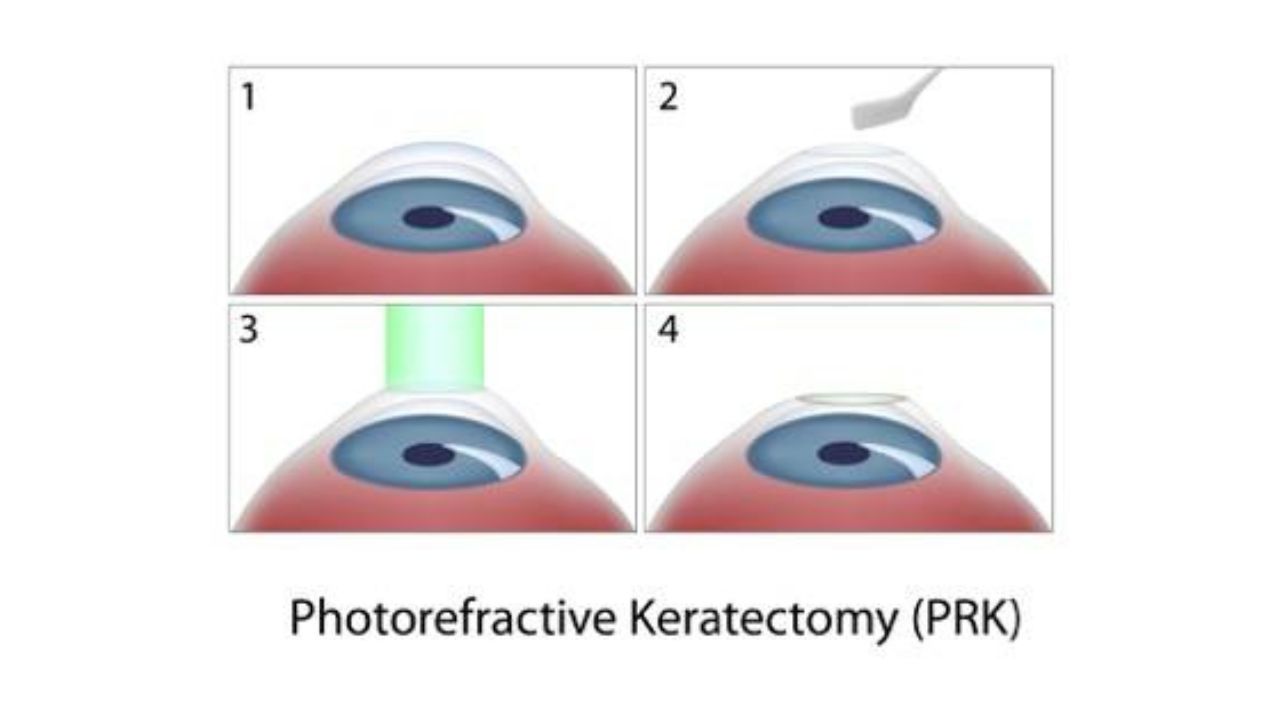PRK (Photorefractive keratectomy)

PRK (Photorefractive keratectomy) is another type of laser eye surgery used to correct common vision problems such as nearsightedness, farsightedness, and astigmatism. PRK differs from LASIK in that it does not involve creating a corneal flap. Instead, the outer layer of the cornea (the epithelium) is removed before reshaping the cornea with a laser.
Here are the key steps involved in PRK surgery:
- Preparation: Before the surgery, your eye surgeon will perform a thorough eye examination to assess your eye health and determine whether you are a good candidate for PRK. You will also be given instructions on how to prepare for the procedure, which may include avoiding contact lenses and eye makeup for a period of time before the surgery.
- Anesthetic: The surgeon will use anesthetic drops to numb the eyes and make the procedure more comfortable.
- Removal of Epithelium: The surgeon will use a special brush or laser to remove the outer layer of the cornea (epithelium), exposing the underlying cornea.
- Cornea Reshaping: A laser is then used to reshape the cornea to improve the way light is focused on the retina. The amount of cornea tissue removed is determined by the specific vision problem being corrected.
- Recovery: After the procedure, a soft contact lens may be placed on the eye to help protect it while the epithelium heals. You will be given specific instructions on how to care for your eyes after the surgery, including the use of eye drops and avoiding certain activities such as swimming or heavy lifting.
PRK has a longer recovery period than LASIK because the outer layer of the cornea must heal and regenerate after the surgery. It may take several days or weeks for the epithelium to fully heal and for vision to stabilize. PRK is generally considered a safe and effective procedure, but it’s important to discuss the potential risks and benefits with your eye doctor before deciding whether it’s right for you.
Specific Content Keywords : prk vs lasik,prk success rate,prk eye surgery cost in india,prk vs lasik cost,prk eye surgery reviews,keratectomy surgery,how long does prk last,prk recovery,prk vs lasik,prk vs lasik cost,prk complications,prk success rate,why choose prk over lasik,prk recovery,prk (photorefractive keratectomy),photorefractive keratectomy (prk) eye surgery,photorefractive keratectomy (prk) vs lasik,photorefractive keratectomy (prk) cost,photorefractive keratectomy prk,what is photorefractive keratectomy,photorefractive keratectomy recovery time,how to pronounce photorefractive keratectomy.
Realated Links

